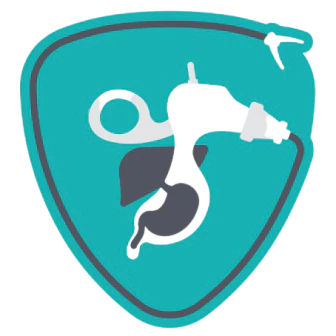Gastroesophageal reflux disease, commonly known as GERD, is a dysfunction in the digestive system that affects very many people. It is a condition in which the acid in the stomach continues to backflow into the esophagus via the stomach. Acid reflux is when stomach acid flows back up the oesophagus, irritating its lining and causing discomfort. If not managed properly, GERD can lead to more severe health complications such as damage to the esophagus, respiratory issues, or even an increased risk of esophageal cancer.
Control of GERD is an essential step towards healthy living. If this disease is diagnosed at an early stage, then it can be prevented from complications and is highly curable in nature. Here are the six signs of GERD that you should never ignore:
1. Heartburn
Heartburn is one of the very common symptoms of GERD. Heartburn refers to that burning feeling in the chest, generally after some meal or even at night when one lies down. This may be due to the rise of stomach acid into the esophagus, irritating the lining. While it is true that almost everyone gets heartburn from time to time, frequent or severe heartburn may indicate GERD. Therefore, one needs to keep a track of how frequently they get heartburn and consult their doctor when the problem gets persistent.
2. Regurgitation
Regurgitation is the process of spitting up stomach contents—food or liquid—into your mouth. It tastes sour or bitter and may give pain. Regurgitation differs from vomiting in that it doesn’t come with an NAUSEA before. You should give attention to your GERD if the episodes of regurgitation become too frequent. If not managed, it may especially be bothersome and lead to other complications.
3. Difficulty Swallowing
Difficulty in swallowing, also known as dysphagia, is a sensation wherein food gets stuck in the throat or chest. It may be a result of inflammation or even the relaxation of the lining of the esophagus, which has been exposed to an excessive amount of stomach acid. Dysphagia is very frightening and sometimes painful. If you experience this sensation regularly, you should consult a doctor because it could be one of the possible symptoms of GERD.
4. Chronic Cough
Chronic coughing for which no apparent reason can be identified and for which over-the-counter medications have no effect may be a symptom of GERD. Stomach acid reaching as far up as the throat and lungs will naturally irritate the respiratory lining and cause chronic coughing. The cough is usually dry and can become worse after meals or at night. If you have a persistent cough without an obvious cause, consider that it might be due to GERD, and discuss that with your doctor.
5. Hoarseness
Hoarseness or a raspy voice may occur when the acid reflux irritates your vocal cords. It will result in some degree of inflammation, then altering the voice quality. Many times, this is more noticeable in the morning or after eating. If you find your voice is regularly hoarse and it is combined with other symptoms mentioned above, it could be a reason to talk to a healthcare professional.
6. Sore Throat
A persistent sore throat, often accompanied by frequent throat clearing or a scratchy feeling in the throat, could point to GERD. Stomach acid flows up and irritates the lining in the throat area, leading to inflammation and discomfort. If you find yourself clearing your throat all the time or you have a sore throat without any apparent reason, then it might be a case of GERD.
Ways to Manage GERD
Although GERD does need some lifestyle changes and at times medications, watching what one eats is pretty much a central aspect of GERD management. Some foods and drinks can trigger symptoms, like spicy foods, caffeine, and alcohol; these must be recognized and avoided. Acid reflux can also be avoided by eating small and frequent meals.
Lifestyle modifications, which include maintaining body weight, avoiding lying down after meals, and quitting smoking, reduce the symptoms of GERD as well. In case these lifestyle changes are not enough your doctor can guide you further regarding medicines that reduce stomach acid production or help the stomach empty faster.
If not managed properly, GERD can bring a significant change in your life. The early recognition of the signs followed by making the necessary diet and lifestyle changes helps one in keeping the condition under control. If you find yourself showing any of the above signs, it is advisable to seek medical advice. Appropriate management by adopting healthy food habits, changes in lifestyle, and treatment will definitely help in preventing complications and improving the quality of life.

